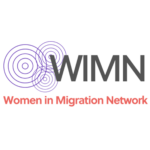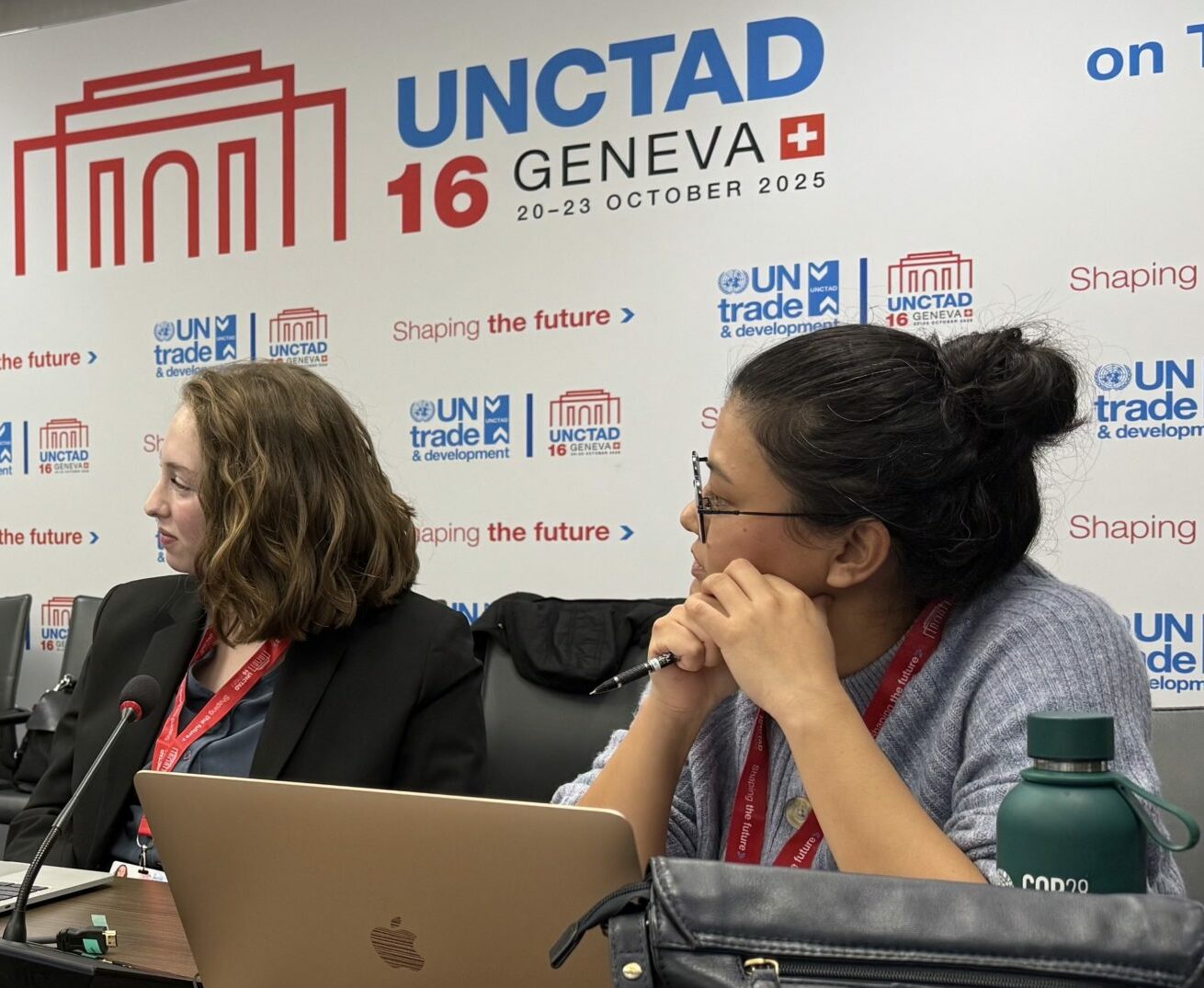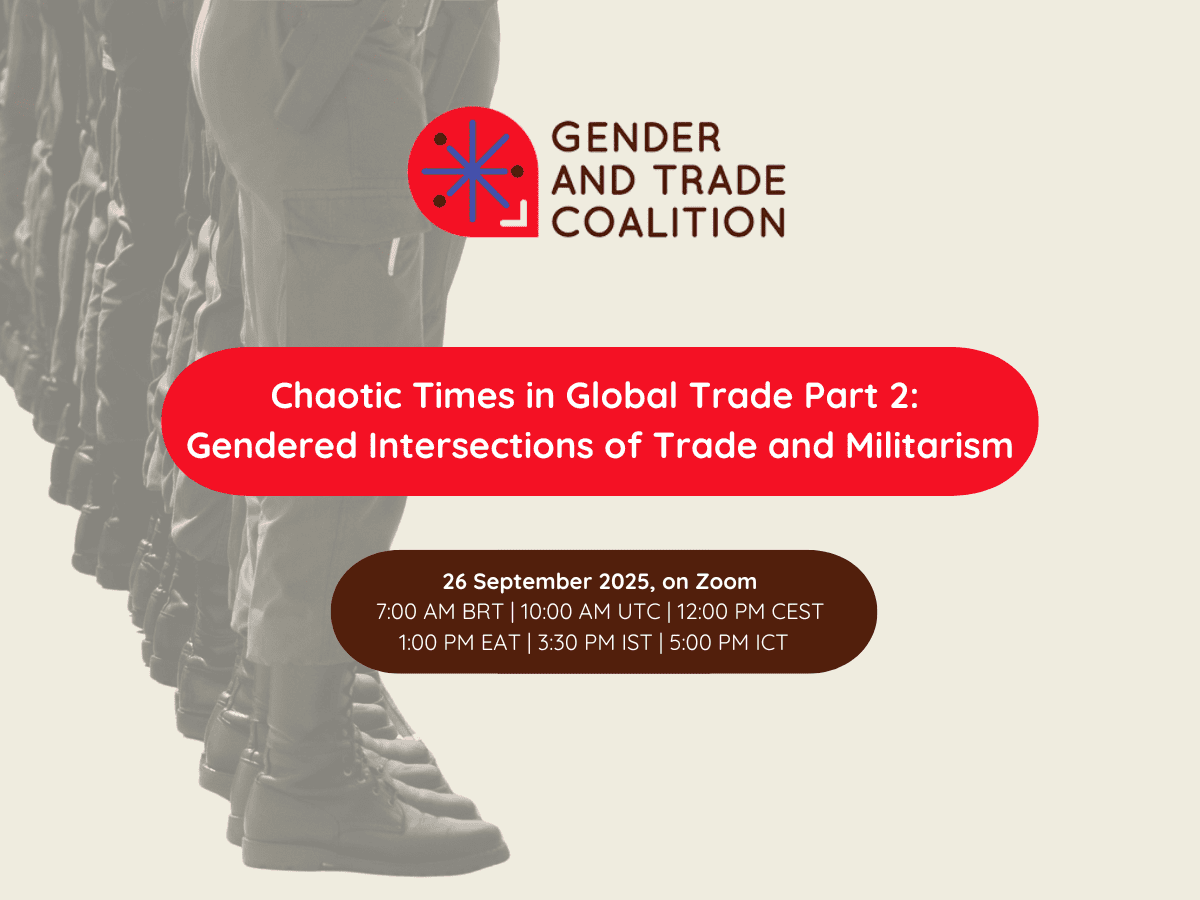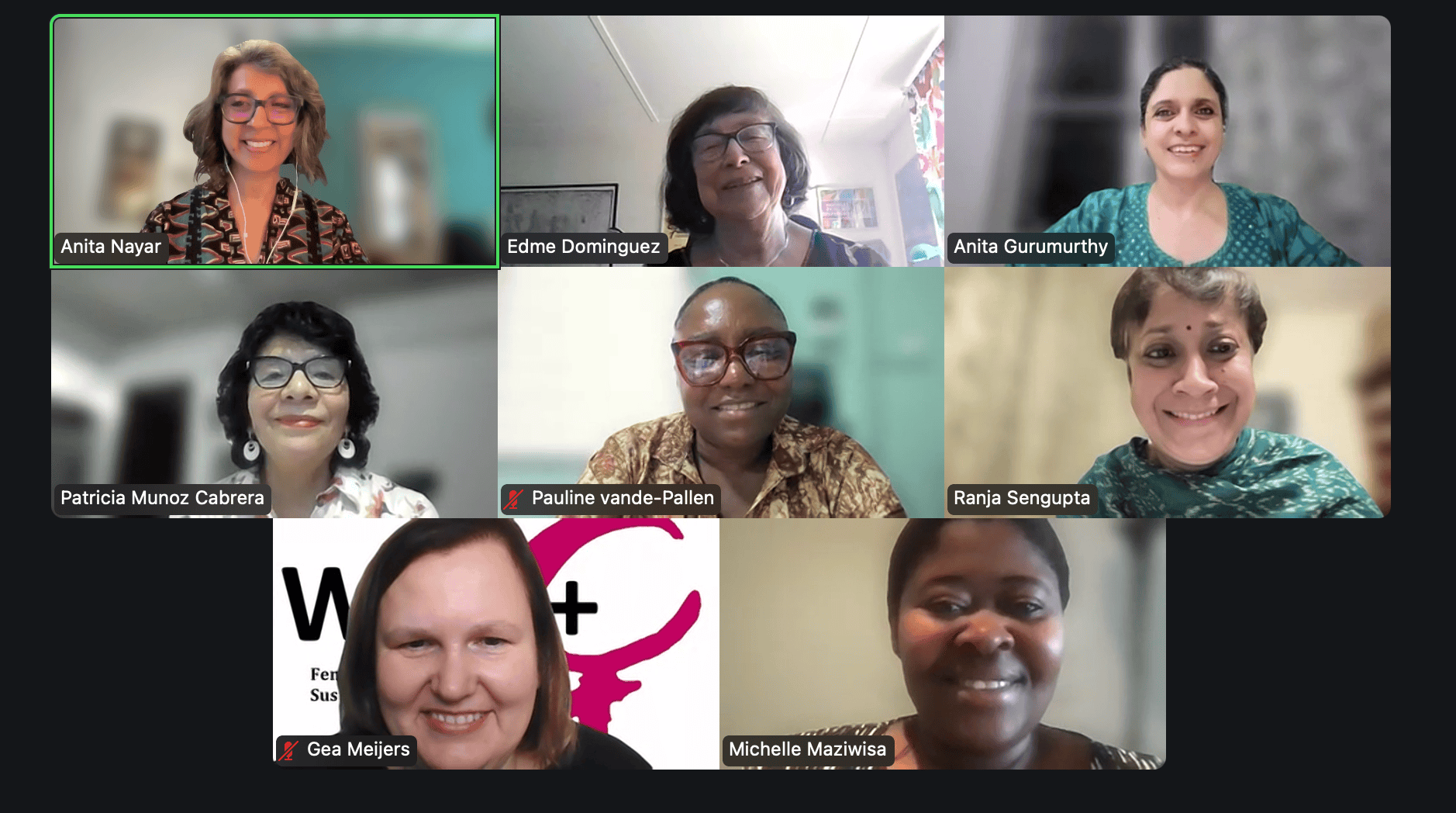Global migration and global trade policies may seem very far from the experiences of migrant women around the globe, yet they directly impact migrant women's lives. In the era of globalized economies, nations and corporations depend on a mobile labor force to meet labor demands while migration policies increasingly pose barriers to mobility that criminalize migrants. States have pushed for free trade of goods, services and capital while excluding dignified mobility for women and their families. Extractive industries and austerity programs push women from their home, while centers of low-wage industry as well as low wage service and agricultural jobs pull women to other countries, often working in hyper-exploitative situations. Given the role women are often assigned as caregivers (both paid and unpaid) in the global economy, migration and migrant women's work is gendered and racialized.
This fourth webinar in a nine-part series entitled 'Trade Justice in the Time of COVID-19' organized by the Gender and Trade Coalition (GTC) is convened by GTC member, the Women in Migration Network (WIMN). It is moderated by Lebohang Liepollo Pheko (Women in Migration Network) and includes the following speakers who explore how the pandemic, which made visible deep structural inequalities, offered the opportunity for a bottom-up, women-centric approach to the international trade and labor architecture:
- Mariama Williams (Gender and Trade Coalition);
- Crecentia Mofokeng (Building and Woodworkers International); and
- Fatimah Kelleher (Action Aid Great Britain and Nawi–Afrifem Macroeconomics Collective).




